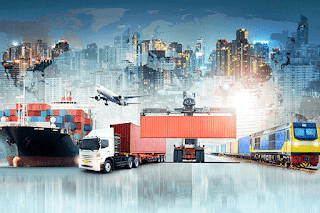Trade Policy Lawlessness Veiled In The Rule Of Law
(Piece originally published at Forbes)
U.S. policymakers portray the United States as the most open, transparent, rules-based economy in the world. Such moral preening is meant to excuse Washington's protectionism as exceptional and virtuous – trade restrictions imposed reluctantly and merely to level a proverbial playing field made unlevel by the actions of rule-breaking foreign companies and governments. But there is nothing virtuous about the biased, often capricious, and increasingly lawless administration of America’s so-called “unfair trade” laws.
Facially, U.S. antidumping (AD) and countervailing duty (CVD) laws allow U.S. industries to seek and obtain special tariffs on imports determined to be sold at prices that cause or threaten to cause them injury. The laws are presumed to guard against foreign companies selling products at artificially low prices in order to knock out their American competition and establish dominance in the U.S. market. In reality, these laws are used predominantly by monopolistic U.S. industries to knock out prospective foreign and domestic competition and deprive their own U.S. customers of alternative sources of supply, which raises business costs, jeopardizes jobs, and subverts foreign policy goals.
The administering agencies long have been afforded vast latitude executing these laws with a bias favoring the petitioning industries. But statutory and regulatory changes in recent years have lowered the evidentiary bar even further, making it easier for the U.S. International Trade Commission (ITC) to find the domestic industry “materially injured”– a condition that must be met for duties to be imposed. Meanwhile, already permissive regulations guiding analysis of prices and costs have become dangerously deferential to the discretion of the U.S. Department of Commerce – an agency better known for its enforcement ethos than its impartiality. Accordingly, the number of restrictive U.S. AD/CVD measures in place has increased from 392 at the start of the Trump administration to a record 674 today (April 12, 2024).
These laws invite big U.S. producers to impede their competition and saddle their customers – manufacturers, retailers, small businesses, mall shoppers – with higher costs and fewer alternatives. In about 80% of U.S. trade cases, the restricted imports are production inputs imperative to downstream U.S. producers. In about 30% of cases, the protection-seeking industry consists of just one producer.
That these laws have become a playground for monopolistic U.S. companies to knock out their domestic competition and hurt their own U.S. customers is on display in a case involving a commonly used product: paper bags. The ITC will decide on April 16 whether to impose AD/CVD duties on imports of “Paper Shopping Bags” from nine countries. The case was brought by one U.S. producer, Novolex, a company that accounts for about 75% of U.S. paper shopping bag production. The countries targeted sell paper bags to small, often family-owned, U.S. distributors and designers for use by U.S. retailers, whose branding efforts depend heavily on paper bags that feature their logos and other custom styling.
Among the reasons imported paper bags are popular is that Novolex chose to neglect retailers’ needs, such as by restricting production to mostly generic, monochrome bags; requiring bags be purchased in massive quantities; refusing to meet customers’ product specifications; and failing to fulfill delivery terms – behavior indicative of robust market power.
Even though witnesses testified to this behavior at a hearing in Washington, the ITC is unlikely to contemplate whether Novolex’s refusal to work with its customers may be the problem or that the duties it seeks could wipe out countless small businesses and considerably raise the branding costs of retailers across the economy. That’s because the laws forbid the ITC from taking into consideration the impact of duties on consuming industries like retailers—or on the economy more broadly—when weighing whether or not to impose them.
America’s so-called “unfair trade” laws pit U.S. industries against each other. They also undermine U.S. foreign policy. As the Biden administration tries to use its soft power to woo third countries away from China’s influence and make some sense of its “friend-shoring” policies, the increasing and seemingly random peppering of exporters in crucial “swing countries” with tariffs that drive wedges between them and their U.S. importers is getting in the way. These worsening protectionist tendencies combined with U.S. flakiness regarding regional trade initiatives have other countries doubting that Washington can be relied upon to follow through on promises of openness, transparency, and the rule of law.
New regulations taking effect later this month won’t help. The new rules allow the Commerce Department to reject or adjust the foreign sales prices and costs that drive the duty calculations in order to account for theoretical differences in production costs stemming from differences in social policies and regulatory enforcement. This will take trade law administration even further away from its statutory intent and undermine efforts to use policy to win the hearts and minds of other countries.
It's time for policymakers to shed delusions about the United States being some exceptional beacon of transparency and openness and, instead, push for reforms that prevent a small subset of U.S. producers from barreling over downstream industries, their workers, and our geopolitical imperatives.




Comments
Post a Comment